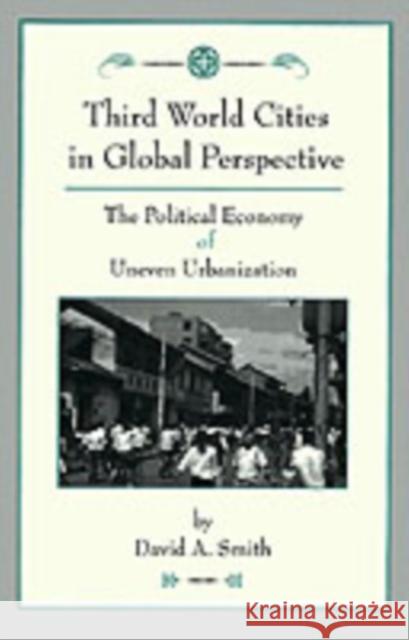Third World Cities In Global Perspective: The Political Economy Of Uneven Urbanization » książka
Third World Cities In Global Perspective: The Political Economy Of Uneven Urbanization
ISBN-13: 9780813329987 / Angielski / Miękka / 1996 / 218 str.
Third World Cities In Global Perspective: The Political Economy Of Uneven Urbanization
ISBN-13: 9780813329987 / Angielski / Miękka / 1996 / 218 str.
(netto: 211,90 VAT: 5%)
Najniższa cena z 30 dni: 216,55
ok. 22 dni roboczych
Bez gwarancji dostawy przed świętami
Darmowa dostawa!
In this innovative book, David Smith ultimately links what happens on the ground in the neighborhoods where people live to the larger political and economic forces at work, putting these connections in a historical framework and using a case study approach.The societies of the world's underdeveloped countries are now undergoing an urban revolution that is drastically altering the fabric of their predominantly rural agrarian societies. Smith takes the emerging political economy perspective on urbanization, with its focus on global inequality and dependency, as the context for city growth in the Third World.This perspective allows Smith to critique the conventional ecological view of the city, not by rejecting traditional analyses out of hand, but by reformulating the crucial questions. The conventional ecological perspective assumes an equilibrium model, where very rapid city growth and the various types of urban imbalances are transitional phases on the path to modernity; in contrast, the comparative political economy approach conceptualizes uneven development and inequality as an inevitable result of the expansion of the capitalist world-system.











